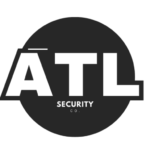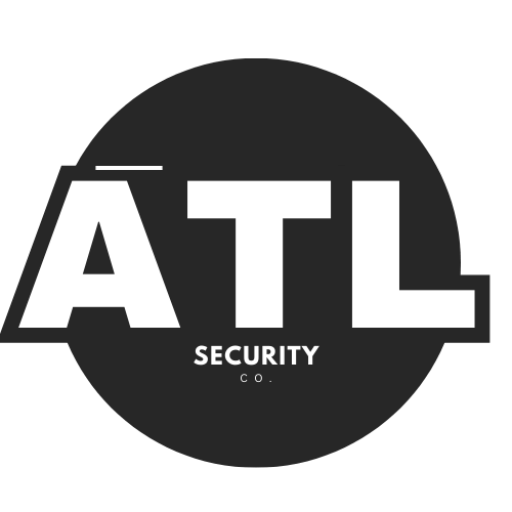Regular inspections of fire safety systems, including fire alarms and sprinkler systems, are crucial for ensuring the safety of occupants in any building. These inspections serve as a proactive measure to identify potential issues before they escalate into serious problems. Fire safety systems are designed to protect lives and property, and their effectiveness can diminish over time due to wear and tear, environmental factors, or even human error.
By conducting regular inspections, property owners can ensure that these systems are functioning optimally, thereby reducing the risk of catastrophic events. Moreover, regular inspections foster a culture of safety within an organization or community. When employees or residents see that fire safety measures are being actively maintained, it instills confidence in the overall safety protocols of the building.
This not only enhances the perception of safety but also encourages individuals to take fire safety seriously. In many cases, the mere presence of well-maintained fire safety systems can deter negligence and promote responsible behavior among occupants, ultimately contributing to a safer environment.
Key Takeaways
- Regular inspections are important for ensuring the functionality and reliability of fire alarms and sprinkler systems.
- Fire alarm inspections should be conducted at least once a year, and more frequently for high-risk environments.
- Sprinkler system inspections should be carried out at least quarterly, with additional inspections for specific components.
- Legal requirements for inspections vary by location, but generally, they are mandated by building and fire codes.
- Signs that fire alarms or sprinkler systems need inspection include frequent false alarms, visible damage, or outdated equipment.
Frequency of Fire Alarm Inspections
The frequency of fire alarm inspections is dictated by various factors, including local regulations, the type of building, and the specific fire alarm system in use. Generally, it is recommended that fire alarm systems be inspected at least once a year. However, certain high-risk environments, such as hospitals or industrial facilities, may require more frequent inspections—potentially quarterly or even monthly—to ensure that all components are functioning correctly.
Regular testing and maintenance help identify issues such as faulty sensors or dead batteries, which could compromise the system’s effectiveness in an emergency. In addition to annual inspections, it is essential to conduct monthly tests of the fire alarm system. These tests typically involve activating the alarm to ensure that it sounds properly and that all notification devices, such as strobe lights and horns, are functioning as intended.
Monthly checks can also include verifying that all manual pull stations are accessible and operational. By adhering to a rigorous inspection schedule, property owners can significantly enhance their preparedness for fire emergencies.
Frequency of Sprinkler System Inspections

Sprinkler systems are another critical component of fire safety that require regular inspections to ensure their reliability. The National Fire Protection Association (NFPA) recommends that sprinkler systems be inspected at least once a year. This annual inspection typically includes a thorough examination of the entire system, including pipes, valves, and sprinkler heads, to identify any signs of corrosion, leaks, or blockages.
Additionally, the NFPA mandates that certain components, such as backflow preventers, must be tested more frequently—often on a quarterly basis—to ensure they are functioning correctly.
In addition to annual inspections, property owners should also conduct monthly visual checks of their sprinkler systems.
These checks can help identify any obvious issues, such as damaged sprinkler heads or obstructions that could impede water flow during a fire.
Regular maintenance not only ensures compliance with legal requirements but also enhances the overall effectiveness of the sprinkler system in protecting lives and property during a fire emergency.
Legal Requirements for Inspections
Legal requirements for fire alarm and sprinkler system inspections vary by jurisdiction but are generally governed by local building codes and fire safety regulations. In many areas, compliance with the NFPA standards is mandatory for commercial buildings and certain residential properties. These regulations often stipulate specific inspection frequencies and procedures that must be followed to ensure that fire safety systems remain operational.
Failure to comply with these legal requirements can result in severe consequences for property owners, including fines, increased insurance premiums, or even legal liability in the event of a fire incident. Additionally, insurance companies may require proof of regular inspections as a condition for coverage. Therefore, understanding and adhering to local regulations is not only essential for maintaining safety but also for protecting one’s financial interests.
Signs that Your Fire Alarms or Sprinklers Need Inspection
Recognizing the signs that your fire alarms or sprinkler systems need inspection is vital for maintaining safety. One of the most obvious indicators is the presence of warning lights or error messages on the fire alarm control panel. These alerts often signal issues such as low battery levels or malfunctioning components that require immediate attention.
Additionally, if occupants notice that alarms are sounding intermittently or not at all during tests, this could indicate a serious problem that necessitates an inspection.
For sprinkler systems, signs of trouble may include visible leaks around pipes or sprinkler heads, rust or corrosion on metal components, or water stains on ceilings and walls.
If any sprinkler heads appear damaged or obstructed by furniture or other objects, this could hinder their effectiveness during a fire emergency.
Regularly monitoring these signs can help property owners address issues promptly and ensure that their fire safety systems remain in optimal condition.
DIY Inspections vs Professional Inspections

While some property owners may consider conducting DIY inspections of their fire alarms and sprinkler systems, it is essential to recognize the limitations of this approach. DIY inspections can be beneficial for routine visual checks and basic maintenance tasks, such as replacing batteries in smoke detectors or clearing obstructions from sprinkler heads. However, comprehensive inspections require specialized knowledge and expertise that most individuals do not possess.
Professional inspections are conducted by certified technicians who have undergone extensive training in fire safety systems. These experts are equipped with the tools and knowledge necessary to identify potential issues that may not be apparent during a casual inspection. They can perform detailed tests on various components of the system and provide recommendations for repairs or upgrades if needed.
While DIY efforts can supplement professional inspections, they should never replace them entirely.
Consequences of Neglecting Inspections
Neglecting regular inspections of fire alarms and sprinkler systems can have dire consequences for both property owners and occupants. One of the most significant risks is the increased likelihood of system failure during a fire emergency. If alarms do not sound or sprinklers do not activate when needed, lives could be lost, and property could be severely damaged.
The emotional toll of such tragedies is immeasurable and can have lasting effects on families and communities. In addition to the human cost, neglecting inspections can lead to substantial financial repercussions. Property owners may face hefty fines for non-compliance with local regulations or increased insurance premiums due to perceived negligence in maintaining fire safety systems.
In the worst-case scenario, if a fire occurs and it is determined that inadequate maintenance contributed to the damage or loss of life, property owners could be held liable in court. The legal ramifications can be severe and long-lasting, further emphasizing the importance of regular inspections.
Tips for Maintaining Fire Alarms and Sprinkler Systems
Maintaining fire alarms and sprinkler systems requires diligence and attention to detail. One effective tip is to establish a regular maintenance schedule that includes both professional inspections and DIY checks. Property owners should mark their calendars for annual professional inspections while also committing to monthly visual checks of their systems.
This proactive approach ensures that any potential issues are identified early on. Another important aspect of maintenance is keeping records of all inspections and maintenance activities. Documentation serves as proof of compliance with legal requirements and can be invaluable in case of an insurance claim or legal dispute.
Additionally, property owners should educate themselves about the specific needs of their fire safety systems by consulting manufacturer guidelines and local regulations. Finally, fostering a culture of safety among occupants is essential for maintaining fire alarms and sprinkler systems effectively. Regularly conducting fire drills and educating residents about how to respond in case of an emergency can enhance overall preparedness.
When everyone understands their role in maintaining safety protocols, it contributes to a more secure environment for all occupants.
FAQs
What is the importance of inspecting fire alarms and sprinklers?
Regular inspection of fire alarms and sprinklers is crucial for ensuring their proper functioning in the event of a fire. It helps to identify any potential issues or malfunctions and allows for timely maintenance or repairs.
How often should fire alarms be inspected?
Fire alarms should be inspected at least once a year by a qualified professional. Some jurisdictions may have specific regulations that require more frequent inspections, so it’s important to check local codes and standards.
How often should sprinkler systems be inspected?
Sprinkler systems should be inspected at least quarterly to ensure that they are in good working condition. In addition to regular inspections, they should also undergo annual testing and maintenance by a certified technician.
What are the consequences of not inspecting fire alarms and sprinklers regularly?
Failure to inspect fire alarms and sprinklers regularly can lead to malfunctioning equipment, which may result in delayed or ineffective response to a fire. This can put lives and property at risk, and may also lead to legal and insurance implications for property owners.
Who should conduct the inspections of fire alarms and sprinklers?
Inspections of fire alarms and sprinklers should be carried out by qualified and certified professionals who have the necessary training and expertise in fire safety systems. It is important to hire reputable and experienced technicians for these critical inspections.




